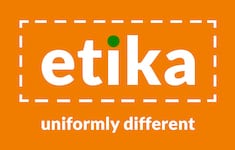Most children and young people in mainstream schools will have their special educational needs met through good classroom practice. This is called Quality First Teaching.
Early Identification of Need
In deciding whether to make special education provision to support educational, social, physical or emotional needs, we: [Schools to personalise their procedures to show how they:]
- Work in partnership with parents/carers, pupils
- Consult with relevant external agencies
- Use assessment tools & materials
- Use observations
- Use Short Notes
- Other
SEN Support
Where a pupil is identified as having a special educational need we follow a graduated approach which takes the form of cycles of “Assess, Plan, Do, Review”.
This means that we will: [school to personalise with exact procedures under each of the APDR – MUST include arrangements for assessing and reviewing progress towards outcomes, including how they work with parents/carers and children]
- Assess a child’s special educational needs
- Plan the provision to meet your child’s aspirations and agreed outcomes
- Do put the provision in place to meet those outcomes
- Review the support and progress
As part of this approach every child with SEN will have an individualised SEN Support Plan that describes the child’s needs, outcomes & provision to meet those needs. Parents/carers and child/YP (where appropriate) views are integral to the this process.
A small percentage of children and young people with significant and/or complex needs may require an assessment that could lead to an Education, Health and Care Plan.
[provide an overview of when an EHC assessment would be appropriate]
[give details of any EHCP Support / Interventions that you currently have]
For more detailed information see the Local Offer
Details of Identification and Assessment of Pupils with SEN
Provide information on:
- Assessments that are used to identify SEN and the area/s of need
- Systems that are in place to record information/assessments
- How progress is assessed
- How you respond to parental concerns
The questions below provide some prompts to assist settings to give a full picture of their provision, approaches, curriculum and learning environment.
[Provide specific examples for each bullet point and a link to the relevant policies e.g. Teaching & Learning Policy which sets out details of the broad and balanced curriculum in each year.]
- How do you ensure access to appropriate high quality teaching, differentiation and intervention?
- How is the ‘assess, plan, do, review’ cycle incorporated into SEN provision?
- How are parents and pupils involved in the APDR cycle?
- How do you plan for learners with SEN?
- How do you ensure there is a holistic approach in addressing all needs?
- How is the impact of provision evaluated for individuals and groups? (Evaluation must relate to outcomes for pupils)
- What does additional support look like in e.g. individual/group intervention, teacher, TA and peer support.
- How do you evaluate high quality teaching with differentiation & personalisation and interventions?
- How is progress measured in relation to the EYFS, NC or local measures?
- Is the behaviour policy differentiated?
- How do you make adjustments/ adaptations? Are they reflected in the Accessibility Plan?
- How do you enable pupils with SEN engage in activities with pupils who do not have SEN?
- How are risk assessments used?
- What arrangements are made for pupils with SEN undertaking tests and exams?
- What is in place to ensure all pupils achieve to the best of their abilities, despite any difficulty or disability they may have?
- How is the curriculum modified to meet individual needs?
- How does your setting ensure that teaching staff are aware of and sensitive to the needs of all pupils, teaching pupils in a way that is more appropriate to their needs?
- How is suitable provision for children with SEN made to fully develop their abilities, interests and aptitudes and gain maximum access to the curriculum?
For further information please view or download our Accessibility Plan which can be found in the School Policies section of our website.













